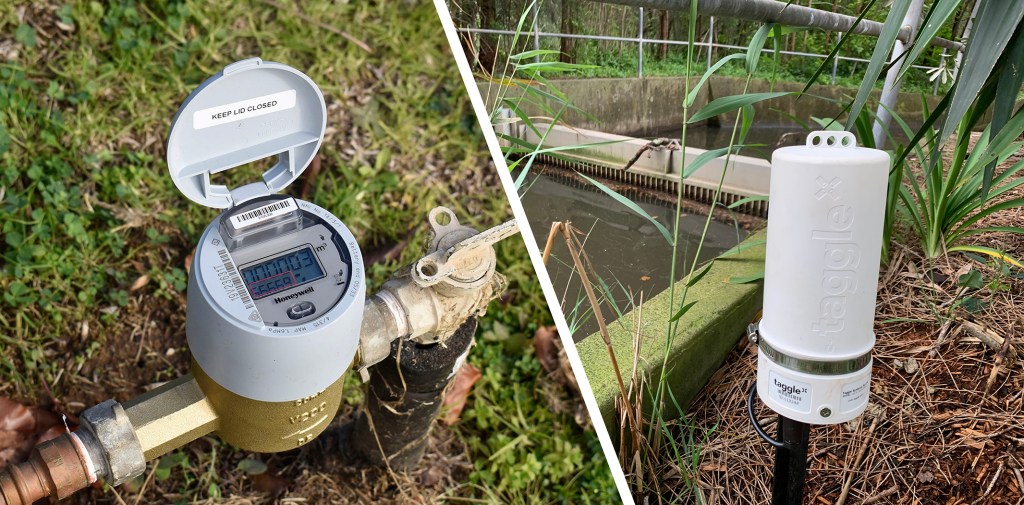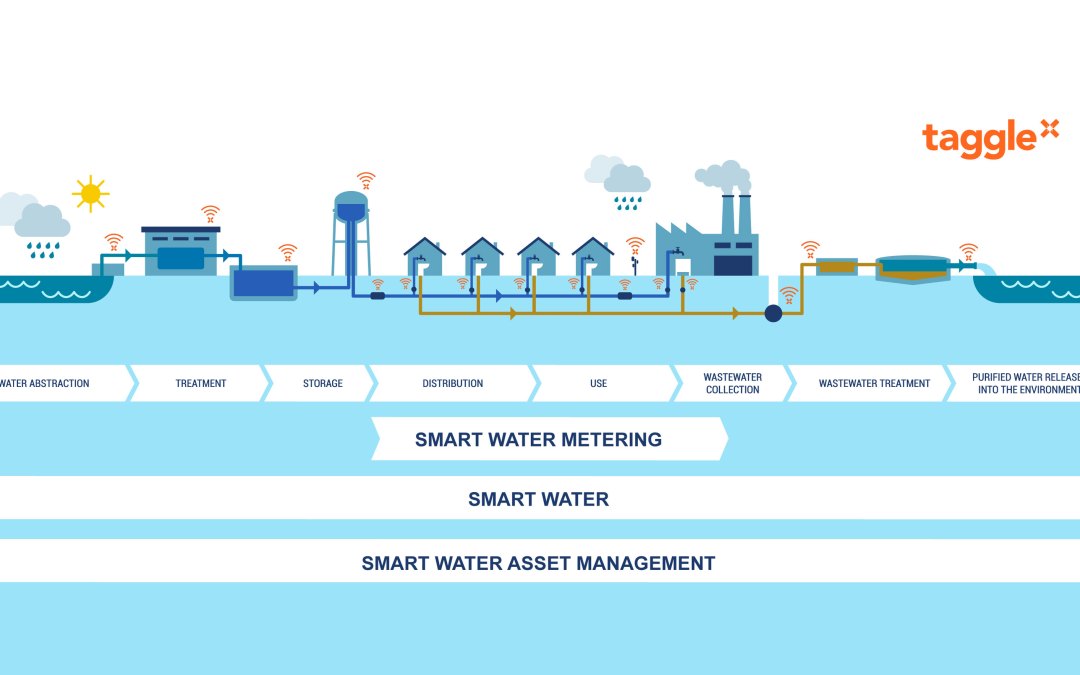The water utility of old is rapidly evolving to a Smart Utility, but it’s important to distinguish Smart Water Metering from Smart Water to ensure you achieve the best business and financial outcomes, as there are fundamental differences.
Smart Water (SW) which includes Industrial Internet of Things (IIOT) and SCADA represents the complete end-to-end water system from water source (dam, bores etc) through to transmission to treatment then distribution through to consumption, and finally the sewer and storm water systems. The introduction of IIOT enables a far broader range of monitoring, data gathering and use cases to be addressed than traditional SCADA, enabling improved insight, greater optimisation and risk management.
Smart Water Metering (SWM) is a subset of Smart Water focusing on residential, commercial and network meters. SWM devices all perform the same simple function, collect water meter data. Once this data is collected, it opens a treasure trove of opportunity to solve water problems. There are likely to be 50 to 100 times more SWM than SW devices in a utility and so individual unit cost and overall device life are key drivers for lowest total cost of ownership (TCO).

Decision making considerations for Smart Water vs Smart Water Metering
Features vs Total Cost of Ownership
SW solutions often rely on specialised sensing devices for a specific purpose and are limited in number. From a SWM point of view there’s a lot of discussion of new sensors and remote shut off valves being integrated into meters, along with the need for flexibility to change radio endpoint behaviours in future. These points do have merit, but if you’re trying to balance the TCO, benefits and risk equation, pragmatism is an important consideration particularly from a TCO point of view. What do you really need? The old 80/20 rule.
Examining Smart Water Metering at the most fundamental level you need:
- Reliable and consistent meter readings
- Battery life of 15, ideally 20 years
- Radio network availability
- Devices built tough and proven in Australian conditions
Battery Life
In SW battery life is an important consideration, but devices are often fewer in number and inspected semi-frequently, which provides opportunities for battery replacement. In SWM, aside from meter audits you don’t want to touch the meter for 15-20 years. Matching battery life and ongoing communications availability to meter life is essential to minimise the total cost of ownership (TCO). The field service costs can quickly escalate if the technology is not proven, or you experience early battery life failure requiring a site visit earlier than the expected life.
SWM is a whole of business project
The introduction IIOT in the SW space is a natural extension to the existing Operating Technology capabilities, however moving to SWM introduces a range of new business transformation considerations compared to traditional metering. This includes the new technologies, Meter Data Management System (MDMS), field servicing, device lifecycle management, alignment with customer service operations to name a few. To drill into an example issue – how will you manage and automate the operational processes related to the many alarm states an individual meter can legitimately present, and the compounded implication when you consider a complete meter fleet. You need an experienced partner with a proven end-to-end solution and software system, not just a bundle technologies and services
SWM is a major program
It goes without saying a smart water meter initiative is a significant investment, compared to traditional water metering. You need to ensure this significant investment is in trusted hands. A proven partner can deliver the technology, but more importantly ensure a successful deployment of the solution and ongoing operation. There are many new considerations today, tomorrow and which will emerge in time and a proven partner will aid your ongoing operational success.
Over the past 10 years Taggle Systems end-to-end smart water metering and smart water solutions have been successfully deployed to over 40 water utilities across Australia. This hands-on experience in the Australian environment, technology, deployment, field operations and business integration positions new utilities well to overcome any pitfalls.
This article was first published in Utility Magazine
To learn more about Smart Water Applications Click Here

